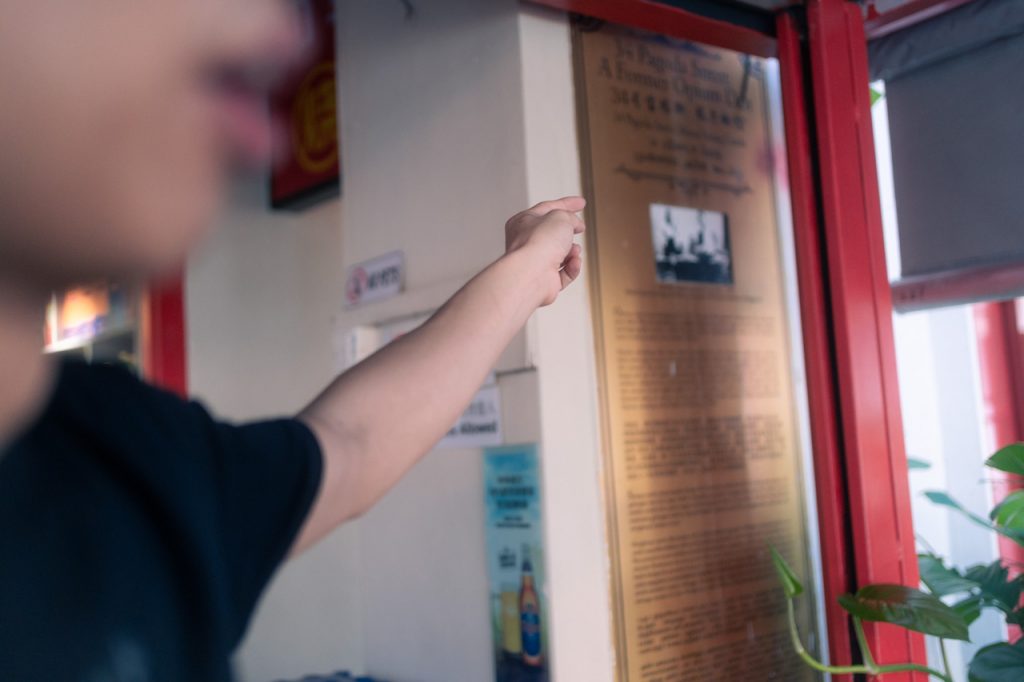All photos by Stephanie Lee by RICE Media
Growing up, 26-year-old Isaac Goh had often been lonely. Being the only child with parents preoccupied with their careers, he would imagine friends to entertain himself.
He also sought attention. Isaac yearned for connection, and he would go all out to prove himself. He played pranks on those around him, pouring the contents of a dustbin on his friend and sticking his locker key into others’ lockers.
He was acknowledged, sure, but never seen. At home, he never got a pat on his back for his studies, despite doing well for O-Levels. Whenever Isaac was at home, he felt watched, scrutinised, and controlled at every turn. His parents determined what he ate, how often he stayed in his room, and how long he could sleep.
Gradually, Isaac left home, continued his studies, and tried to live a life of a young adult. Last June, Isaac was released from the Drug Rehabilitation Centre (DRC) after being arrested for drug abuse.
Roots of Struggle
I asked Isaac if these failures led him to seek solace in drugs. He chuckles. “This is the first time I am hearing this,” he says.
I mention that his backstory paints someone who’s self-driven and motivated. If failure isn’t the reason, what would it be?
“It was success,” Isaac replied.
In secondary school, Isaac wanted to be an actor–he underwent acting classes, answered casting calls, and tasted success with minor stints on television.
This, along with stellar O-Level results, gave him confidence despite feeling little control over his life. He pursued Aviation Management and Services at the Polytechnic, but it felt like the last achievement in his life.
He faced a string of unfortunate incidents that formed a downward spiral. He got suspended from his course for a year after a public squabble with a stranger. He caught pneumonia in National Service.

Gradually, Isaac bought into the idea that life would never go according to plan, and he would never be respected–neither as a peer by his schoolmates nor as an adult by his parents.
Instead, it was his own efforts at a side hustle that gave him purpose. It also opened a gateway into a life-altering trajectory.
“I sold a carton of scented candles to a man,” Isaac tells me. “He challenged me to take a puff of Ice.”

Before the pandemic, Isaac ran a side business selling scented candles online. During one of his deliveries, he met a mysterious client who told Isaac he would buy everything from him if he dared to take a puff of an unknown substance lying on the table.
The offer was hard to reject. It could have taken Isaac months to sell off the scented candles. So, he decided to take a puff, which surprisingly, did not cause him any discomfort.
Little did Isaac know that the choice would plunge him into a world hard to climb out from. Before long, the client became Isaac’s supplier, giving him access to various kinds of drugs: from ice to ecstasy and LSD. All for free.
Isaac admitted that this was a bonus. All along, he had been careful with his expenses, and he would have thought twice if there was a need to fund his new-found habit. This meant he didn’t have any excuse to stop.
Over time, Isaac developed a permissive mindset towards drugs. He also formed a father-son bond with his supplier, however bizarre it sounds. They spent hours together abusing drugs in hotel rooms and Airbnbs.
“He never questioned or denied my existence. It was the kind of interaction that I wished I could have with my own father,” Isaac noted.

Uncovering Support
If Isaac’s childhood and chance encounter with his supplier opened a door to drugs, the listlessness of Circuit Breaker manifested it into a full-blown addiction.
“My life literally became idle and stagnant,” Isaac noted. He tried to make himself useful by becoming a contact tracer. But his effort was–like everything he did in his life–mocked by his father, who instead questioned why he was still so “sociable” when everyone was kept at home.
This led to more quarrels between Isaac and his family. Finally, when Circuit Breaker was lifted and minimal social gathering was permitted, Isaac left.
He chose to spend his nights away from home, abusing drugs with friends–playing Mobile Legends and chatting for hours–at random spaces. Eventually, he was arrested and spent six months in the DRC.
During his rehabilitation, Isaac developed plans to start a fast-casual takeaway business. But just as things were panning out nicely, old habits returned.
Isaac was already in contact with management at a shopping mall to set up a stall. He contacted a friend, a business consultant, for support. “I met up at his house to discuss my business plan. He was a drug abuser himself,” he tells me. “The presence of drugs at his place triggered a temptation within me.”
“Now that I look back, as an addict, I could never rely on my willpower to stop myself”

Despite his newfound drive and plans for a better life, Isaac couldn’t deny his friend, who was offering him something irresistible. Isaac was at a crossroads—he was lucky to have a friend but unlucky that the friendship involved addiction.
In Isaac’s words, his second arrest was far from forgiving. He was confined for a total of 10 months, of which close to 30 days were spent in an isolated cell in quarantine due to the tightening of COVID-19 restrictions.
As a result, each family visit became a precious time for Isaac to connect with the world. That was also when he began pouring his years of grievances to his father.
“I confronted him about my feelings and how he has been putting me down since I was a child,” Isaac said. “I felt that I no longer have the burden because we are separated by the prison walls, so I am not afraid my dad would nag at me for hours after my confession.”
The confrontations shocked Isaac as he saw his father—someone who rarely showed emotion—crying for the very first time.
Living Examples
Meanwhile, Isaac’s cellmates also encouraged him to think from his father’s perspective. Perhaps his father has always been proud of him, just that his upbringing and values didn’t allow him to express it in a way that encouraged Isaac.
Likewise, Isaac’s father never meant to be controlling. Setting boundaries was a way for him to discharge his duties as a father.
Isaac added that it was only after the confrontations that his parents became more open to him—sharing their past and the challenges they faced when they were his age.

“Parents assume they need to be strong in front of their children,” Isaac said. “What they don’t know is that we children learn from living examples. By sharing their stories and understanding where they are coming from, we connect with them and learn that no one is perfect in the world.”
Isaac’s family and friends created a structured plan to help him steer clear of any triggers or cravings. They accompanied him for walks and volunteering activities. They built a healthier support network—one that encompasses listening and empathy—rather than drugs.
“These small efforts made me feel valued,” Isaac noted. “They finally accepted who I am and all my strengths and vulnerabilities. I feel there is no excuse to ever let them down again.”
Today, Isaac is also impacting others by being their living example. He has assumed a full-time role as a project executive at Architects of Life (AOL), a social enterprise helping at-risk individuals and ex-offenders like himself.
Isaac believes bringing youths together and forming meaningful relationships around sports or volunteering is a small but powerful step the community can take to foster a stronger sense of connection and belonging.
“Sometimes, we may not realise just how important each of us can be as part of a community,” said Isaac. “Building social circles not only brings us together but also gives us the space and opportunity to watch out for those around us and give us an outlet to voice our problems.”
This is exactly what the National Council Against Drug Abuse (NCADA)’s 2022/2023 media campaign, ‘What’s Your Fix?’ aims to achieve—emphasising the importance of supporting those who may be vulnerable to the influence of drugs, and sparking conversations on the harsh realities of drug abuse.
The campaign recently released a docuseries titled On the Mend. It recounts the journey of ex-abusers like Isaac on their journeys towards recovery.
To Isaac, his perspective of society is one that has a strong sense of morality about what is right and wrong. But to a young person—who is building their identity and finding their space in the wider world—it is harder to distinguish that line.
He hopes that, by seeing the full complexion of these living examples, youths understand the harm that comes with permissiveness towards drug abuse—to realize that a short fix can cause immense damage to one’s self and the people around them for a long time.
Before we ended our conversation, I wished Isaac well: That things would work in his favour from here on out.
“Yes, I hope so too,” Isaac says, not forgetting his smile.












